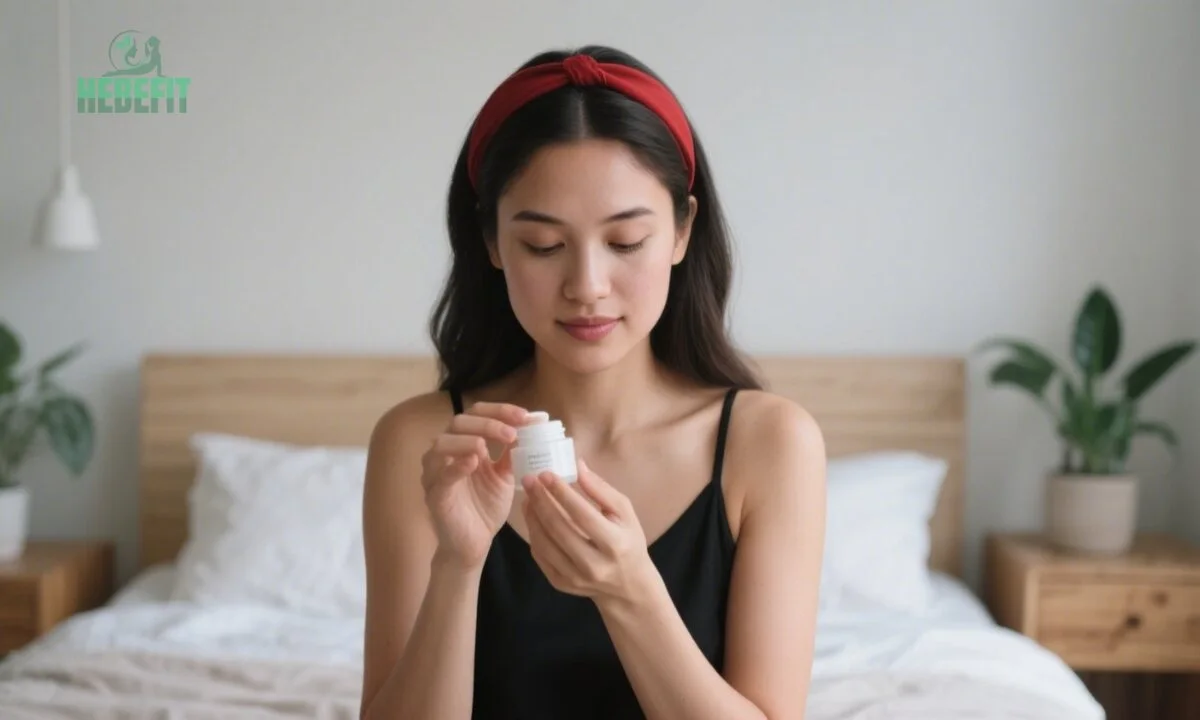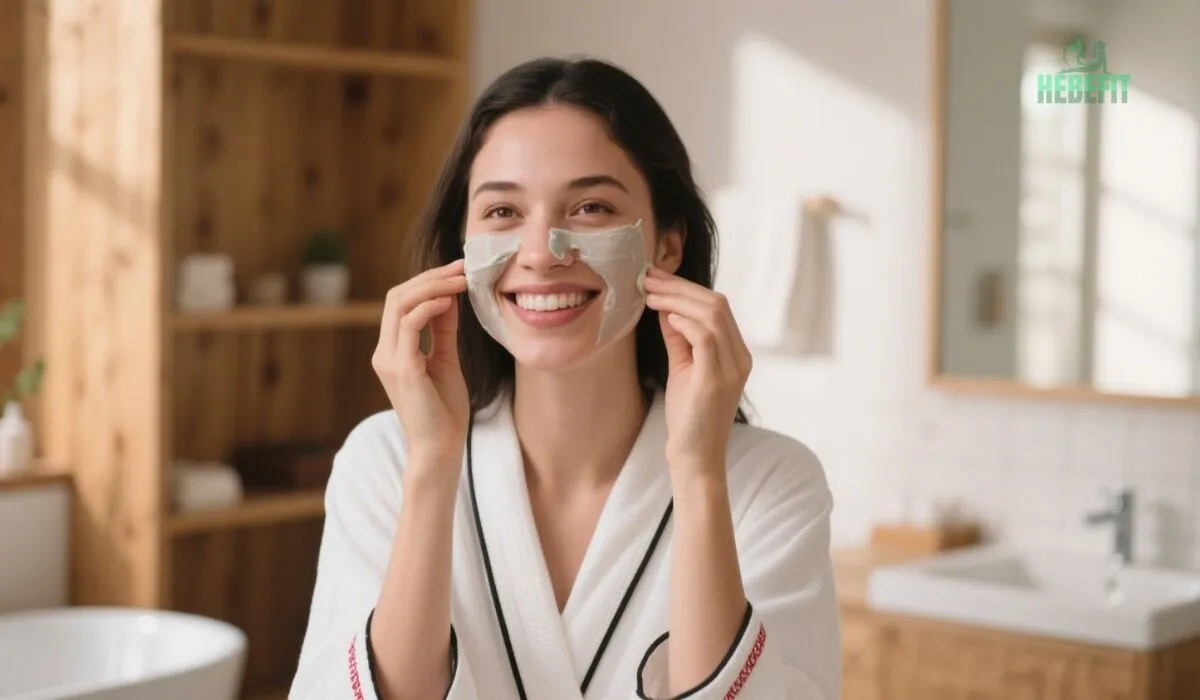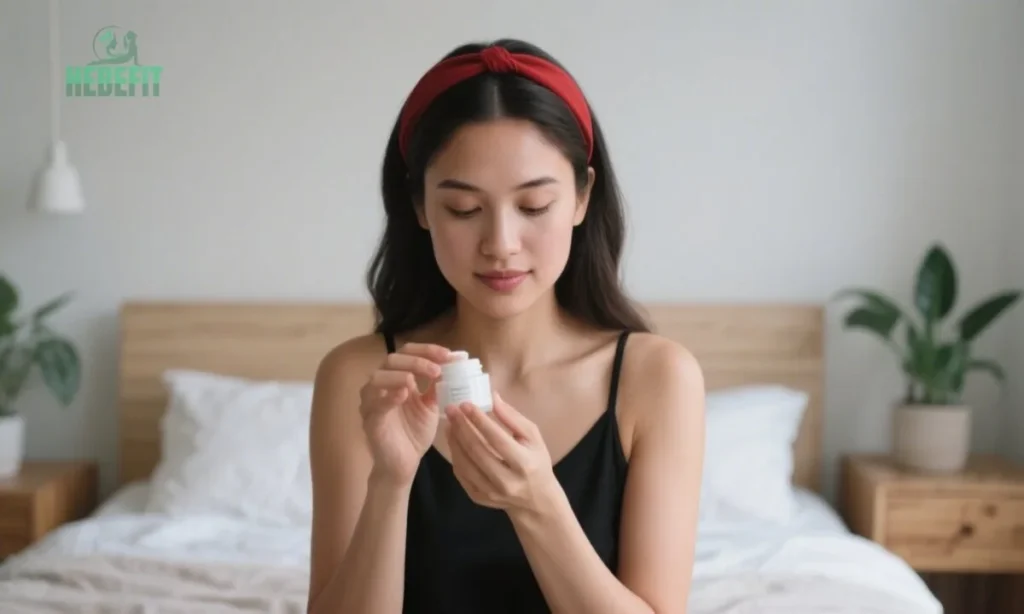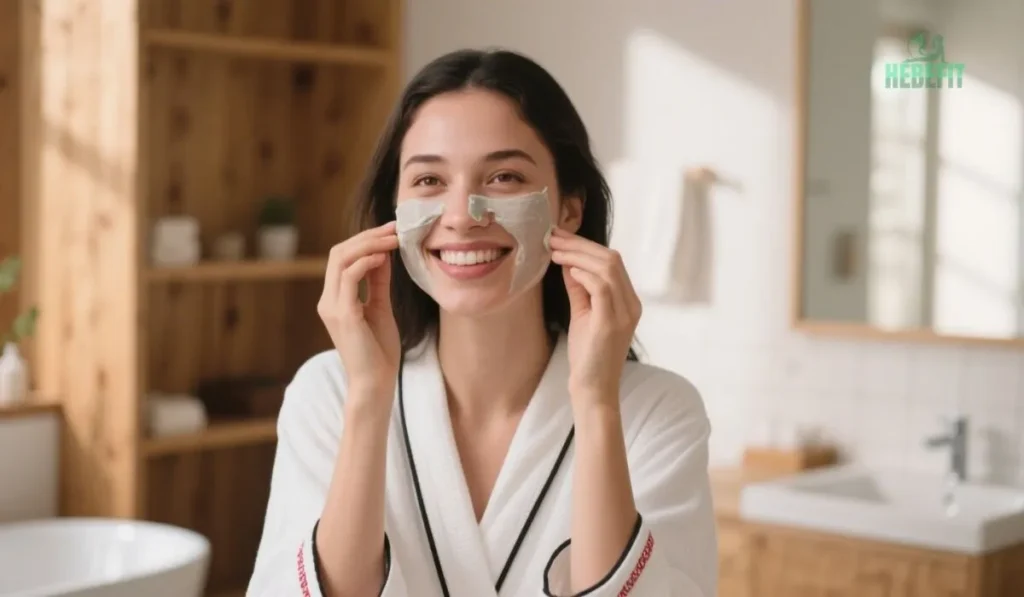Embarking on a journey to achieve radiant, healthy skin can feel overwhelming, but it doesn’t have to be. The first step to having great and healthy skin is to follow the tips in Understanding the fundamentals of Skin care: 4 tips for healthy skin. Since a regular skin care routine is important, many individuals want to discover Skin care: 4 tips for healthy skin. Simple advice is given here to show any individual, especially those just beginning in the USA or Canada, how to develop lasting skin health.
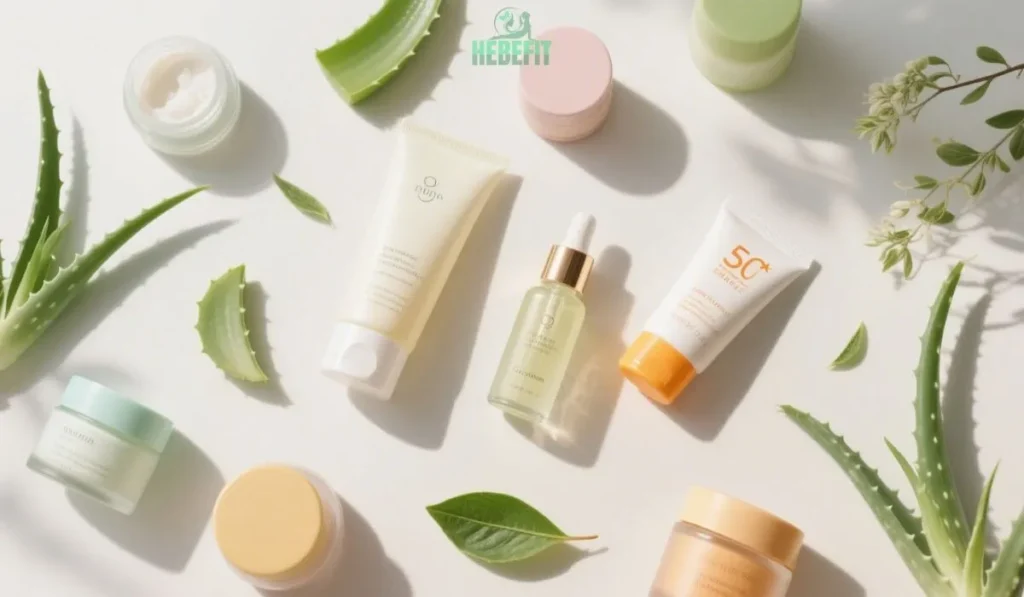
Why Understanding “Skin care: 4 tips for healthy skin” Matters for You
Knowing about Skin care: 4 tips for healthy skin is more than just a pursuit of aesthetic appeal; it’s an investment in overall well-being. The skin is the body’s largest organ and acts as a primary defense against environmental aggressors like pollution, UV radiation, and harmful bacteria. A lack of proper skin care can cause early ageing, dry skin, irritation, acne and heightened risk for skin conditions.
By following simple skincare tips regularly, you help your skin in many ways.
- Keep the skin strong and resistant: Guarantee the barrier keeps your skin healthy.
- Prevent Problems at Home: Minimize the risk of pimples, blemishes or dry skin with our products.
- Boost Confidence: Healthy, glowing skin can significantly improve self-esteem.
- Support Ageing Well: Since ageing happens naturally, the right skincare can manage skin’s ageing signs, making your complexion appear youthful for a longer period.
Due to the different climates and ways people live in the USA and Canada, it’s important for everyone there to focus on skin health.
Unveiling the Core “Skin care: 4 tips for healthy skin”
There are a few main things that help you achieve and keep healthy skin. Any great skincare routine relies on these four basic tips to provide a simple but strong foundation for the skin.
Tips 1: The Gentle Power of Cleansing
You should always start your skincare routine by cleansing. During the day, skin can become dirty with oil, pollutants, makeup and dead skin cells. When skin isn’t clean, residue from those products can accumulate which in turn leads to pimples, lackluster skin and unevenness.
Choosing Your Cleanser Wisely
It is important to select a cleanser that matches your skin type and won’t make your skin dry. Using a very strong cleanser may upset the pH of your skin, causing irritation, dryness or even overproduction of oil.
Cleanser Recommendations by Skin Type
| Skin Type | Recommended Cleanser Type | Characteristics |
| Oily Skin | Gel, Foaming | Removes excess sebum, often feels refreshing |
| Dry Skin | Cream, Lotion, Oil-based, Balm | Hydrating, non-stripping, supports moisture |
| Normal Skin | Micellar Water, Cream, Gentle Foam | Balances, maintains natural hydration |
| Combination | Gentle Foaming, Gel (T-zone focus) | Balances oily and dry areas |
| Sensitive | Micellar Water, Cream, Balm | Fragrance-free, hypoallergenic, soothing |
The Cleansing Ritual
- Frequency: Usually, it is good to clean your skin twice a day, during the morning and again before you go to sleep. In the morning, your cleansing removes oils and sweat and, in the evening, it gets rid of everything you picked up throughout the day.
- Technique: Use water that is lukewarm, so you don’t lose the natural oils on your skin. Using just a little cleanser, massage it into your damp face and hold the massage for 30-60 seconds. Wash the cucumber inside and out before patting it dry with a clean, soft towel. Make sure you don’t rub your skin too hard.

Tips 2: Hydration Heroes – The Magic of Moisturizing
All skin types, including oily skin, need to use moisturizer. A proper moisturizer adds moisture, supports the skin’s protection against outside elements and gives your skin a more even texture and better look. Dehydration often results in skin without shine, a constant tight feeling and extra chances of fine lines and irritation.
Why Every Skin Type Needs a Moisturizer
- With dry skin, you should choose rich and emollient moisturizers (creams, ointments) to deeply moisturize and prevent water from leaving the skin.
- For those with oily skin, use non-greasy, oil-free hydrating lotions or gels that won’t clog your pores. Failing to use moisturizer can lead oily skin to produce yet more oil as it tries to keep itself hydrated.
- Combination Skin: There is a chance you will need to moisturize some parts differently or choose a lotion that’s well-balanced.
- For those with sensitive skin, choose products free from fragrance and made with soothing substances.
Applying Moisturizer for Maximum Benefit
After cleansing your face or applying a serum, use moisturizer on face that is still slightly damp. Lightly and gently rub upwards all over your face and neck to apply the product. Always pay attention to the neck and décolletage, since they reflect signs of aging.
Tips 3: Your Daily Shield – The Non-Negotiable Sun Protection
If there’s one skincare step that experts universally agree is the most important, it’s daily sun protection. Unprotected sun exposure is the leading cause of premature aging (wrinkles, age spots, sagging skin) and significantly increases the risk of skin cancer. This tip is vital for maintaining healthy skin.
Decoding SPF and Broad Spectrum
- SPF tells you how protected you are from UVB rays which mainly lead to sunburn. It is common practice to use an SPF of 30 or more on a day-to-day basis, according to dermatologists.
- When sunscreen is called “Broad Spectrum,” it is able to block UVA and UVB rays. A broad-spectrum sunscreen should always be your first choice.
Understanding SPF Levels
| SPF Level | UVB Ray Blockage (Approx.) | Recommended For |
| SPF 15 | 93% | Minimal daily exposure (not ideal as primary) |
| SPF 30 | 97% | Daily use for most individuals |
| SPF 50 | 98% | Extended outdoor exposure, sensitive skin |
| SPF 50+ | >98% | Very high protection |
Making Sunscreen a Habit
Sunscreen should be put on your face as the final part of your morning skincare, before you apply makeup. It’s still required when it’s cloudy, as approximately 80% of UV rays can still pass through them. If you’re in the sun for a long time, applying sunscreen again every two hours or after you get wet or hot, is very important. Always using sunscreen often is one of the best ways to prevent signs of aging.

Tips 4: Consistency and Lifestyle – The Unsung Champions
The habits you keep and the lifestyle choices you make have a big influence on healthy skin, as much as any product. Optimal results will only come from frequent use of the best products if you also care for your health inside the body.
Building a Sustainable Routine
Doing Skin care regularly is key to getting great results. Daily devoting a little time to your routine works better than having a roundabout routine you follow every so often. Be patient, since it may be several weeks before you see any change. You need to be patient and keep going.
Beyond Products: Diet, Sleep and Stress
- Nutrition: A balanced diet rich in antioxidants, vitamins, and minerals supports skin health from within. Foods like fruits, vegetables, healthy fats (avocado, nuts, fish), and lean proteins contribute to a glowing complexion.
- Hydration: Drinking an adequate amount of water throughout the day helps keep skin plump and hydrated.
- Sleep: During sleep, the skin repairs and regenerates. Aim for 7-9 hours of quality sleep per night.
- Stress Management: Chronic stress can trigger skin issues like acne, eczema, and psoriasis. Incorporating stress-reducing activities like yoga, meditation, or spending time in nature can benefit the skin.
Key Nutrients for Skin Health & Food Sources
| Nutrient | Benefit for Skin | Common Food Sources |
| Vitamin C | Antioxidant, collagen production, brightens skin | Citrus fruits, berries, bell peppers, broccoli, tomatoes |
| Vitamin E | Antioxidant, protects against UV damage, moisturizing | Nuts (almonds), seeds (sunflower), spinach, avocado |
| Vitamin A | Promotes cell turnover, anti-aging | Carrots, sweet potatoes, spinach, liver, dairy products |
| Zinc | Wound healing, anti-inflammatory, oil regulation | Oysters, red meat, poultry, beans, nuts, dairy |
| Omega-3 Fatty Acids | Reduces inflammation, maintains skin barrier | Fatty fish (salmon, mackerel), flaxseeds, walnuts, chia seeds |
| Antioxidants | Protect against free radical damage | Berries, dark chocolate, green tea, artichokes, pecans |
The Ripple Effect: Benefits of Embracing These Healthy Skin Tips
Consistently applying these Skin care: 4 tips for healthy skin can lead to a multitude of benefits beyond just a better appearance:
- Improved Skin Texture and Tone: Skin becomes smoother, softer, and more even.
- Reduced Breakouts: Proper cleansing and hydration can minimize acne.
- Enhanced Radiance: Healthy skin naturally glows.
- Delayed Signs of Aging: Sun protection and good habits slow down the formation of wrinkles and age spots.
- Increased Comfort: Alleviates dryness, tightness, and irritation.
- A Sense of Well-being: Taking care of oneself, including the skin, can be a mindful and rewarding practice.
Elevating Your Skincare Journey Further
After these essential Skin care: 4 tips for healthy skin are used for a while, people might start learning new things. On HebeFit, you’ll find information about serums, targeted for problems like hyperpigmentation, fine lines, along with guides about retinoids, AHAs/BHAs and the pros of natural/organic skincare. While learning about advanced subjects can benefit your gardening routine, still, making sure the basics are mastered is very important. If you go to our other articles, you’ll find extensive advice for what to do next.
Final Thoughts on Your Path to Radiant Skin
Getting healthy skin takes time and patience, not a quick race. With these simple tips—gentle cleansing in the morning, moisturizer regularly, sun protection daily and a nutritious way of life—anyone can make sure their skin is both beautiful and healthy. Let the process work its magic, have patience and allow your skin to help you gain confidence. Because your skin is individual, you can enjoy discovering the products that suit you best.
FAQs
Here are some common questions people ask about getting started with skincare and making the most of these tips:
How long does it take to see results from a new skincare routine based on these 4 tips?
Many people feel excited about what’s to come. It’s possible that your skin feels much more moisturized soon after application. When you hope for truly noticeable changes, keep using the products for up to 8 weeks. Because skin renews itself slowly, you must be patient with your treatments.
Do I really need sunscreen if I spend most of my day indoors?
That’s an important question to ask. Yes, it’s still a wise decision to make. It’s true that the UVA rays known to contribute to aging and risk of skin cancer can still come in directly through your windows. So, just using sunscreen daily, whether inside or next to a window, is a great way to protect your skin.
Can I use the same moisturizer for my face and body?
Although it’s possible, facial skin is likely to be more sensitive and develop clogged pores more often than skin in other areas. Moisturizers for your face are generally light and designed not to break out your skin. To protect your skin well, a specialized facial product is usually preferred.
What’s the most important of the “Skin care: 4 tips for healthy skin” if I can only do one?
It’s a hard question because none of them stands out more than the others. If you asked many skin experts what the key is, they would probably say it is regular sun protection (our Tip 3). Regularly putting it on is your strongest protection from rapid aging and greater skin issues. All the tips discussed are essential for achieving truly flawsome skin.
How do I know my skin type to choose the right cleanser and moisturizer?
A simple way to figure this out is to wash your face with a gentle cleanser, pat it dry, and then just wait about 30 minutes without applying anything.
- If your skin feels tight and parched, it’s likely dry.
- If you see a noticeable shine all over, especially on your forehead, nose, and chin, you probably have oily skin.
- If your T-zone (forehead, nose, and chin) gets oily but your cheeks feel normal or even a bit dry, that’s classic combination skin.
- If your skin generally feels comfortable and balanced, you’re lucky to have normal skin.
- And if new products often make your skin red, itchy, or irritated, you likely have sensitive skin.
Is it okay to skip my skincare routine sometimes?
Sometimes we can’t keep to our habits and that’s fine; it’s not going to undo the progress you’ve made. What really helps get the best outcomes is sticking to your routine. If you don’t wash your face before bed, the amount of makeup and dirt on your skin will not be cleaned off which is not recommended. Put in your best effort to continue on your journey.
Are expensive skincare products always better?
Not in the slightest! A product’s price isn’t always an indication of how well it works. What should be emphasized is the formula and what’s inside the product. A lot of great and affordable skincare products can be found for sale right in your neighborhood drugstore. Choose products made with ingredients that suit your skin and meet your needs.
Can diet really impact my skin as much as these skincare tips?
It absolutely can have an effect. To put it another way, the nutrition you provide (covered in Tip 4) supports your body in producing healthy new cells for your skin. A meal plan filled with lots of processed items, sugar and unhealthy fats can cause you to develop inflammation and skin problems. In addition, getting your nutrients from food will work with your regular skincare routine to make your skin look great.

